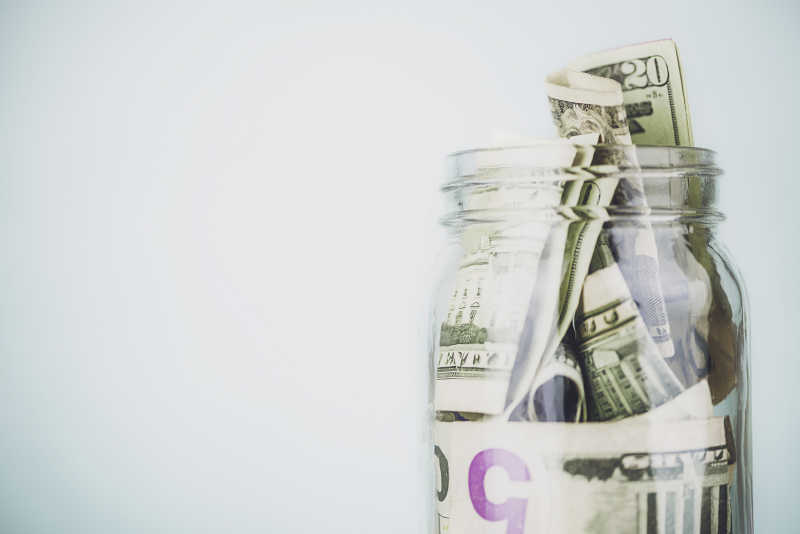What Can I Expect After Bankruptcy?
April 29, 2021
Nearly 11,000 Chapter 7 and 13 bankruptcies were filed in Virginia in 2020. Per capita, Virginia ranked 14th among all states in the number of bankruptcy filings. This means that by the end of 2020, almost 11,000 people were wondering how bankruptcy would affect the rest of their lives.
People who file for Chapter 7 or Chapter 13 bankruptcy are seeking a fresh financial start for themselves and their families. Most will get that new start, but it does come with some consequences.
If you are considering filing for bankruptcy or have already filed and want to know what long-term effects it might have, our team of experienced bankruptcy attorneys can answer your questions, help you navigate the legal process, and teach you how to manage a better financial future.
At Vivona Pandurangi, PLC, we help clients in Falls Church, Alexandria, Arlington, Fairfax, and Manassas, Virginia understand the implications of filing for bankruptcy and how to make the most of the fresh financial start that bankruptcy can provide.
Will Creditors Continue to Harass Me?
Constant calls, emails, letters, and other obtrusions from creditors can be unbearable. If you have fallen behind on your bills and other financial obligations, they all want their money immediately, even though they know you cannot pay them. Will bankruptcy help?
Once you file for bankruptcy, the court automatically issues a “stay order” that stops any action a creditor can take against you. So long as you have listed all debts in your case, the court will inform all creditors of the stay order. You are under no obligation to advise your creditors before or after you file for bankruptcy.
Upon notification from the court, all creditor calls should cease. They are not allowed to call, email, text, or send threatening letters to you. They also cannot repossess your collateral, foreclose or place a lien on your real property, or file a lawsuit against you.
If creditors fail to cease these actions, notify your bankruptcy attorney. Your attorney can update creditors or threaten to file suit against them if they continue to violate the court’s stay order.
What Happens to My Credit Score?
People with below-median incomes can file for Chapter 7 bankruptcy to wipe out their debt, but the bankruptcy remains on their credit report for 10 years.
If your income exceeds the median income in Virginia, you may be able to file for Chapter 13 bankruptcy to restructure your debt. In Chapter 13 bankruptcy, you agree to a plan that allows you to pay off your debt in three to five years. If you adhere to the plan, the bankruptcy remains on your credit report for up to seven years.
Can I Fix My Credit?
Here are three steps you can take to start rebuilding your credit during the time the bankruptcy appears on your credit report:
Request a Copy of Your Credit Report from The Three National Credit Bureaus — Experian, Trans Union, and Equifax
If you filed for Chapter 7, wait 90 to 120 days after your debt has been discharged. Make sure all debt that was to be discharged shows a zero balance.
If you filed for Chapter 13, request copies 90 to 120 days after you file for bankruptcy. Make sure any debt not included in the bankruptcy still shows that you are making payments. Once you have completed the debt repayment plan, wait another 90 to 120 days to make sure all debt you paid off under the plan shows zero balances.
Take out A Credit-Builder Loan at A Credit Union
These are small loans — usually $1,000 or less — placed in a special savings account. You don’t get to use the amount borrowed until you have made the required number of scheduled payments equal to the borrowed amount. The loan earns interest in the savings account while you make payments on it.
Get a Credit Card
Your mailbox will not overflow with credit card offers after bankruptcy, but you can try to get a secured credit card from your credit union or bank. A secured credit card requires you to deposit a certain amount of money that then serves as the limit for the card. If you can qualify for an unsecured credit card, it will probably be one with a low spending limit and high-interest rates and penalties. Using either type of card can help restore your credit, but only if you use it wisely. Use it for small purchases that you could pay for out of your checking account and pay off the entire balance every month.
How Experienced Bankruptcy
Attorneys Can Help
Filing for Chapter 7 or Chapter 13 bankruptcy is not a decision most people take lightly, but it is often the only way they can return to solid financial footing. That fresh start does have consequences, so consulting with experienced Virginia bankruptcy attorneys should be an easy decision to make.
At Vivona Pandurangi, PLC, we prepare clients for what to expect, guide them through the bankruptcy process, and help them tackle the long-term effects. We help clients avoid the same poor financial choices that might have put them in financial trouble in the first place.
With offices in Falls Church and Alexandria, Virginia, we serve clients throughout Fairfax, Arlington, Prince William, and Loudoun counties. If you are considering bankruptcy or have filed and want to know what comes next, call our office to schedule a consultation.
